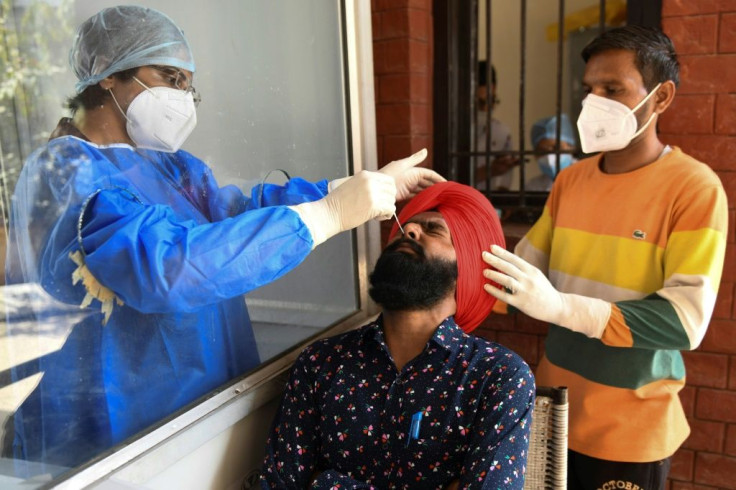New Portable COVID-19 Test Detects Virus And Tracks Mutations In Minutes
KEY POINTS
- A portable machine called the NIRVANA is able to detect COVID-19 in minutes
- It can also identify the presence of other variants of the virus
- The NIRVANA is said to be faster and more convenient than the standard method
Scientists have made another breakthrough in the fight against COVID-19. A new portable test, dubbed the NIRVANA, is able to diagnose COVID-19 and simultaneously determine other viruses similar to the deadly coronvirus.
As SARS-CoV-2 continues to proliferate in different parts of the world, scientists are developing new technologies to combat its further spread. One of these technologies is the portable, pocket-sized machine that’s able to test for viruses that could be mistaken for the coronavirus, Eurekalert reported in a news release published Wednesday. What's more, the machine will also be able to sequence the virus, providing significant information on the spread of COVID-19 mutations and its variants.
"This is a virus detection and surveillance method that doesn't require an expensive infrastructure like other approaches," said Juan Carlos Izpisua Belmonte, co-corresponding author of the study published in the journal Med. Izpisua Belmonte is a professor at Salk's Gene Expression Laboratory who has worked on several other studies surrounding cellular biology. "We can accomplish with one portable test the same thing that others are using two or three different tests, with different machines, to do."
The standard way of determining whether an individual is positive for COVID-19 is by administering a polymerase chain reaction (PCR) test, which can detect genetic material from the SARS-CoV-2 virus. If one tests negative, however, the PCR test is not able to determine what is causing the coronavirus-like symptoms unless the individual undergoes other tests.
This approach has been proven to be quite long and slow-moving, which is why the NIRVANA is considered a promising device by clinicians in making their jobs a little less laborious.
The NIRVANA was designed by scientists to "simultaneously test samples for COVID-19, influenza A, human adenovirus, and non-SARS-CoV-2 human coronavirus. In just 15 minutes, the researchers report, the device begins to report positive and negative results. And within three hours, the device finalizes results on all 96 samples."
Throughout the research, Izpisua Belmonte worked closely with his colleague Mo Li, an assistant professor of bioscience at King Abdullah University of Science and Technology in Saudi Arabia, who spent six years as a Salk postdoctoral researcher in the Izpisua Belmonte lab. The two professors used the NIRVANA on 10 samples known to be positive for SARS-CoV-2, 60 samples of unknown SARS-CoV-2 status, and samples of municipal wastewater bearing the SARS-CoV-2 virus and others.
In all cases, the NIRVANA was able to correctly determine which viruses were present in the samples. The data the pocket-sized machine provided also allowed scientists to narrow down the origin of the SARS-CoV-2 in positive samples.
"The pandemic has provided two important lessons: first, test widely and quickly, and second, know your variants. Our NIRVANA method provides a promising solution to these two challenges not only for the current pandemic but also for possible future ones," Izpisua Belmonte concluded.

© Copyright IBTimes 2025. All rights reserved.





















